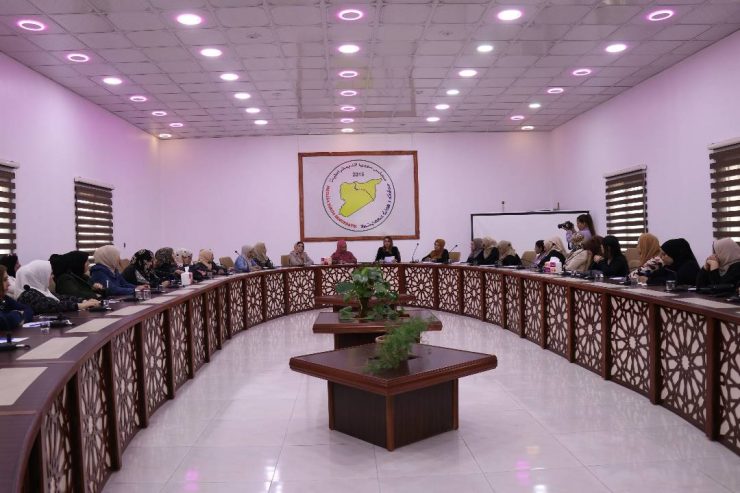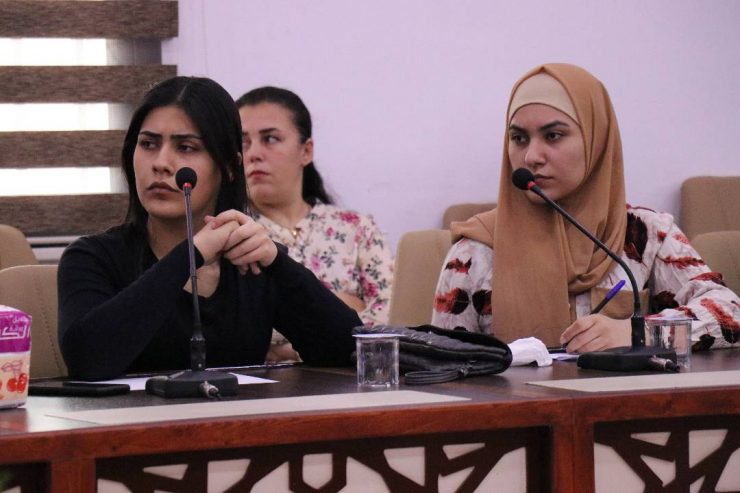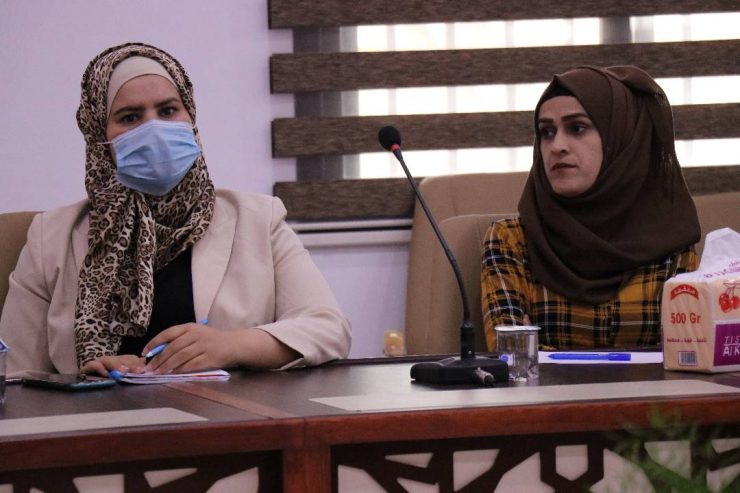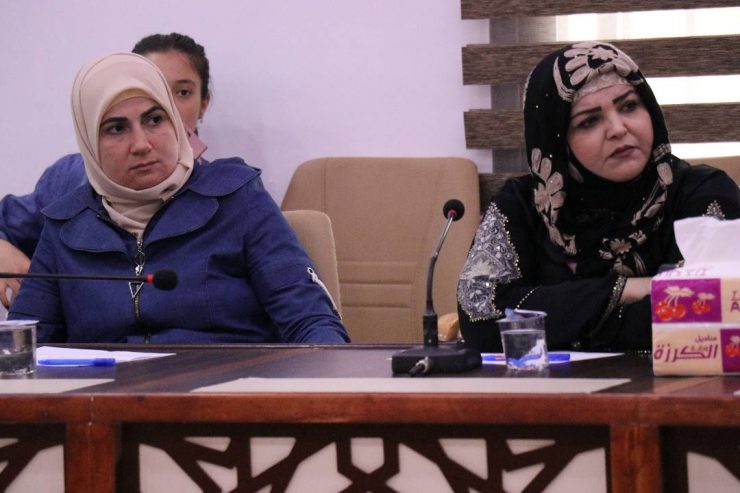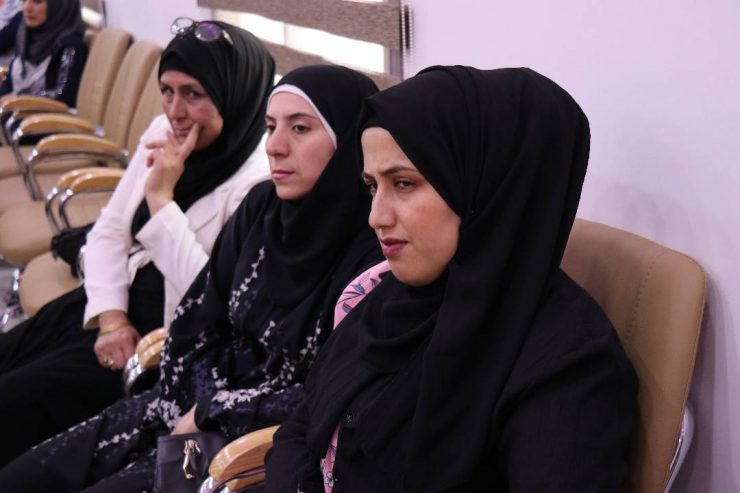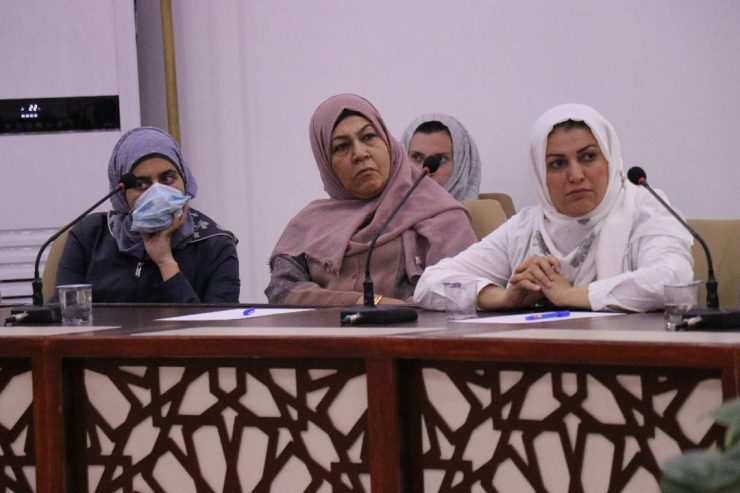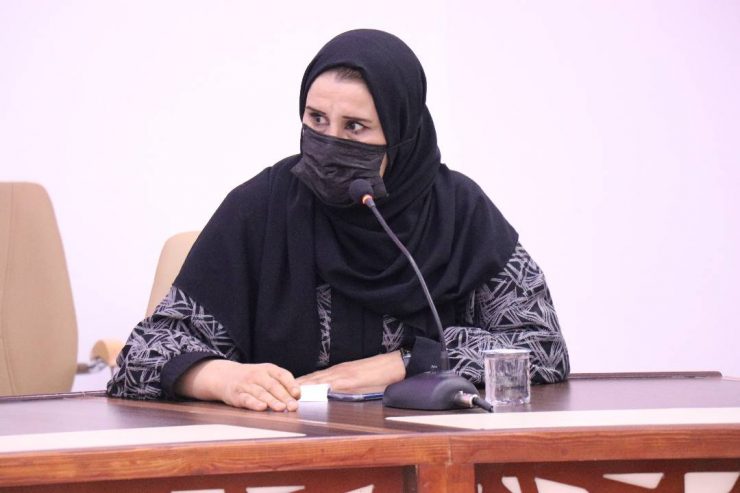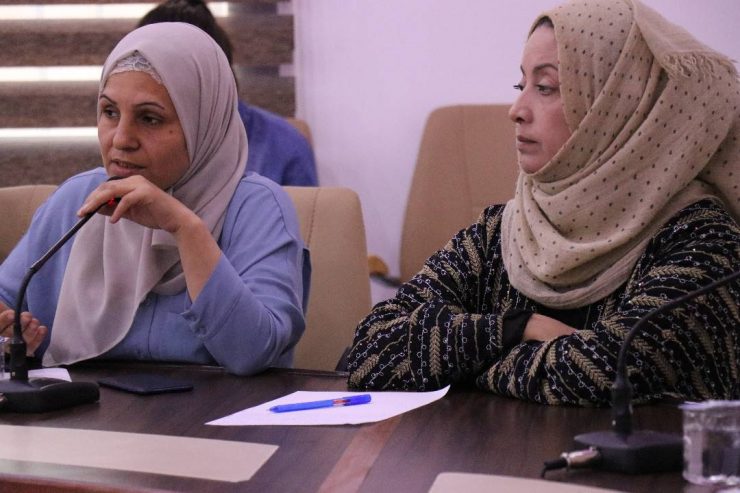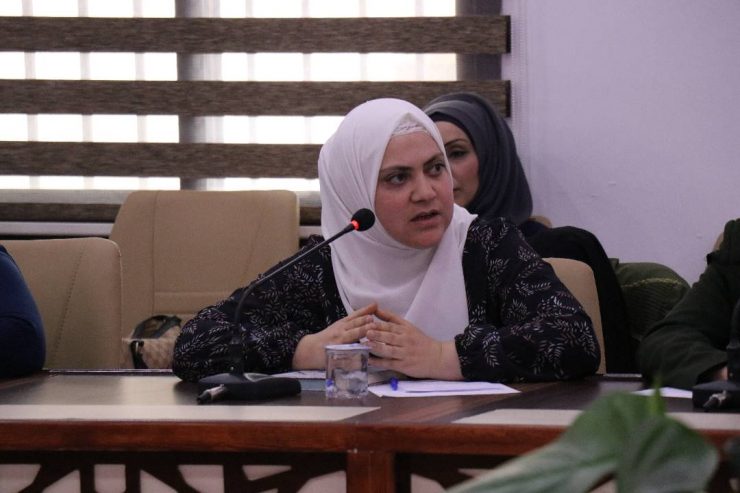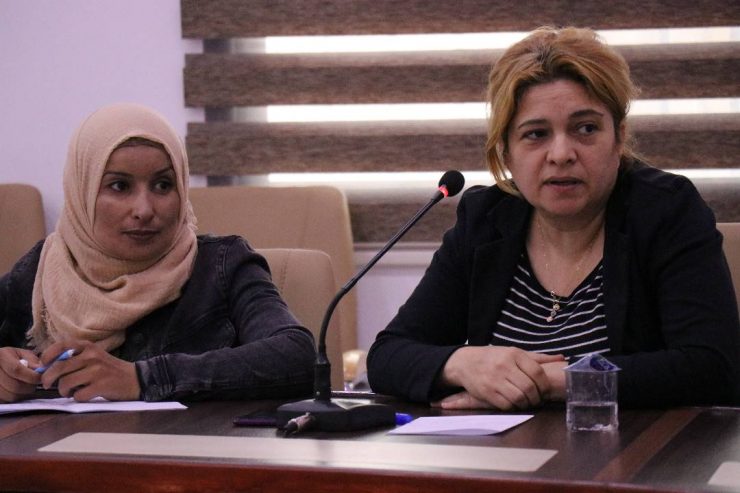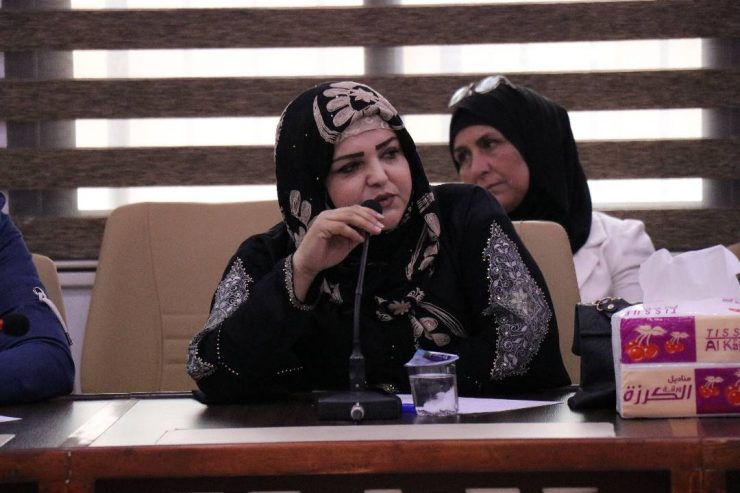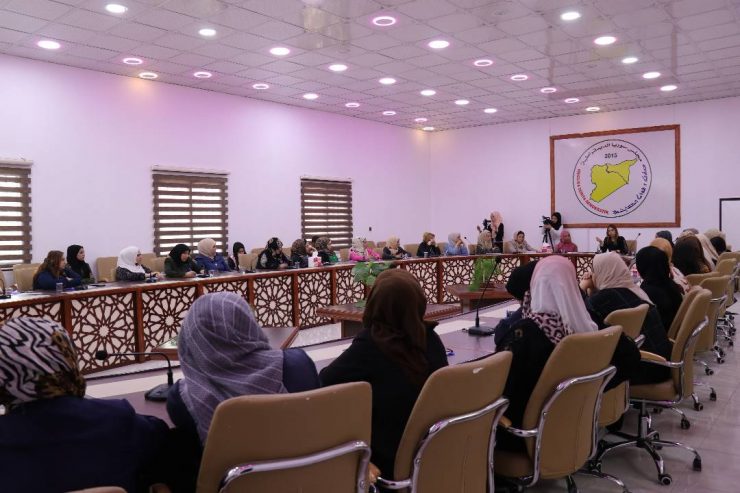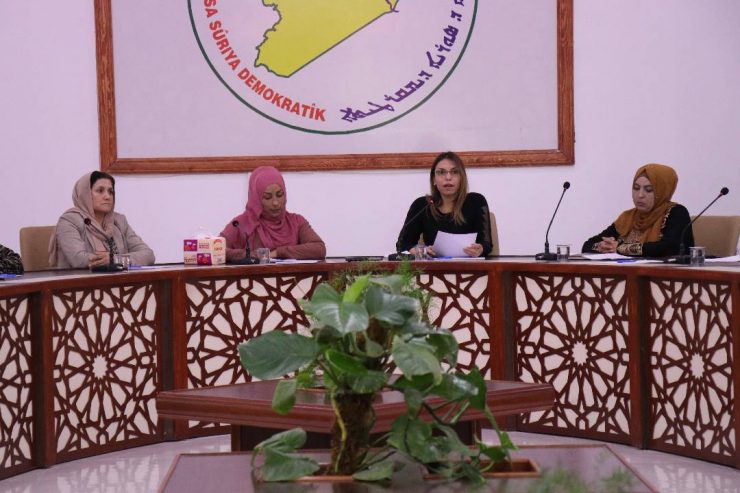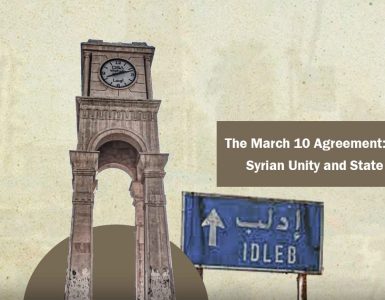An elite of Syrian women in Raqqa gathered in Raqqa yesterday, on Monday, to discuss the path of normalization with Damascus. The discussion took place during a seminar organized by the Women’s Bureau of the Syrian Democratic Council at its headquarters in Raqqa.
The seminar was begun with a summary presentation explaining the process of normalization with the authorities in Damascus, whether the Turkish or Arab normalization. Thubiyah Al-Nasser, the administrative head of the Women’s Bureau of the Syrian Democratic Council, clarified that Turkey’s intentions towards Damascus are clear, including serving its own elections, making the opposition to not get advantage from the matter of refugees, and undermining the project of the Autonomous Administration.
Al-Nasser continued her talk about Arab normalization and the meetings in Jeddah, Amman, and the Arab Summit. She stated that the Syrian Democratic Council supports Arab rapprochement with Syria within the framework of clear objectives that lead to the implementation of Resolution 2254 and the necessity of involving all Syrian parties in the resolution. She also mentioned the possibility that the Arab stance could present a real opportunity to exert pressure towards a political resolution and meet the aspirations of the Syrian people for democratic transition.
Demah Al-Ali, a member of the Women’s Committee for the Green Idlib Council, stated that this return does not serve the interests of the Syrian people but rather falls within the framework of the interests of intervening countries. Al-Ali expressed her wish for Arab action to hasten the political resolution, implement the outcomes of Jeddah Meeting on the ground, hasten the return of refugees, release detainees, and achieve the transitional phase.
Fayrouz Khalil, the head of the Syrian Women’s Council, condemned the Arab League’s position after twelve years of the Syrian Revolution. She emphasized that it is the fundamental duty of Syrian women to take measures towards detained women and refugees in camps, as well as towards the suffering of the people in Syria. Khalil called for women’s decisions to be of importance and priority in determining the fate of the Syrian people.
Similarly, Nahed Al-Nahhas, the women’s spokesperson for the Future Syria Party, condemned Arab normalization and attributed it to the bloodshed of martyrs on Syrian territories, urging not to forget their sacrifices, the suffering of bereaved women, displaced children, detainees, and refugees.
On the other hand, Samaah Sharaney, the spokesperson for the Syrian Women’s Council, pointed out that the suspension of Syria’s membership in the Arab League has not yielded any results. She questioned how its reinstatement would bear fruit. Sharaney continued her analysis by discussing the possible scenarios that could occur if Syria does not regain its membership in the Arab League.
In conclusion, the female administrators of civil institutions, Autonomous Administrations, and political parties discussed the role of women in shaping and establishing society. They emphasized that women’s participation is one of the most important elements of the democratic process.


